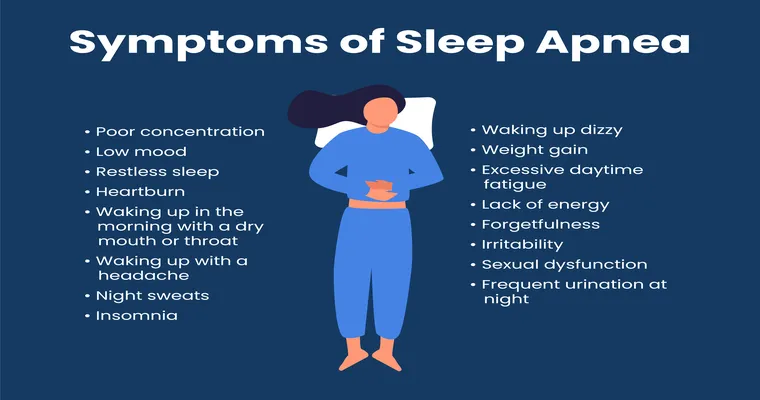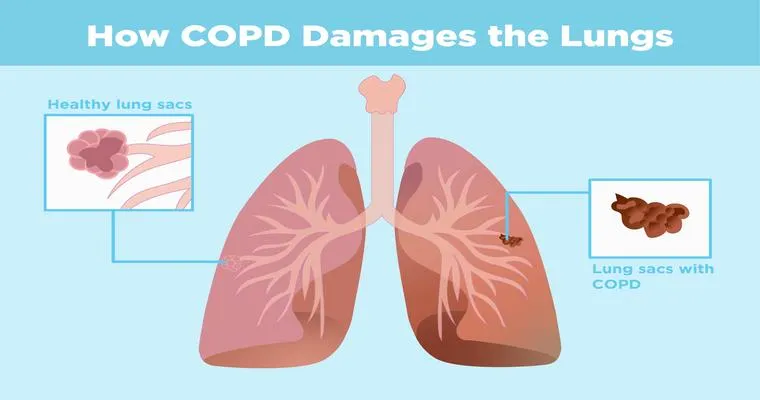"Obstructive Sleep Apnea (OSA)" is a common yet serious sleep disorder that affects millions of people worldwide. It occurs when the muscles in the throat relax excessively during sleep, leading to "snoring", choking, or gasping for air. While many dismiss snoring as a mere annoyance, it can be a warning sign of a more significant health issue. Understanding the implications of OSA is essential for anyone who experiences frequent snoring or other related symptoms.
What is Obstructive Sleep Apnea?
Obstructive Sleep Apnea is characterized by repeated interruptions in breathing during sleep. These interruptions can last for a few seconds to minutes and may occur dozens or even hundreds of times a night. The most common symptoms include loud "snoring", daytime fatigue, and difficulty concentrating. If left untreated, OSA can lead to severe health complications.
Symptoms and Risk Factors
Individuals with OSA often experience several symptoms that can impact their quality of life. The most notable symptoms include:
Loud "snoring"
Episodes of breathing cessation during sleep
Gasping or choking during sleep
Morning headaches
Difficulty staying awake during the day
Certain risk factors can increase the likelihood of developing "Obstructive Sleep Apnea". These include obesity, a family history of sleep apnea, smoking, and having a narrow airway or enlarged tonsils. Understanding these risk factors can help individuals recognize their susceptibility to the condition.
Health Risks Associated with Obstructive Sleep Apnea
Ignoring the signs of OSA can lead to a range of serious health problems. Some of the most concerning risks include:
"Cardiovascular Issues": OSA is linked to high blood pressure, heart failure, and stroke. The repeated drops in blood oxygen levels can strain the cardiovascular system, leading to long-term complications.
"Diabetes": Studies have shown a connection between OSA and insulin resistance, increasing the risk of type 2 diabetes.
"Mental Health Disorders": Persistent fatigue and sleep deprivation can contribute to anxiety, depression, and other mood disorders.
"Impaired Cognitive Function": Lack of quality sleep can affect memory, focus, and decision-making abilities.
Diagnosis and Treatment Options
If you suspect that you or a loved one may have "Obstructive Sleep Apnea", it is crucial to seek medical advice. A healthcare provider may recommend a sleep study to monitor breathing patterns and identify the severity of the condition.
Treatment options vary based on the severity of OSA and may include:
"Lifestyle Changes": Weight loss, regular exercise, and avoiding alcohol can make a significant difference in reducing symptoms.
"Continuous Positive Airway Pressure (CPAP)": This device helps keep the airways open during sleep by providing a steady stream of air.
"Oral Appliances": Dental devices can reposition the jaw and tongue to keep the airway open.
"Surgery": In severe cases, surgical options may be considered to remove excess tissue or correct structural problems in the airway.
Conclusion
Obstructive Sleep Apnea is more than just a nuisance; it is a significant health concern that requires attention. If you or someone you know is experiencing symptoms such as loud "snoring", daytime fatigue, or breathing interruptions during sleep, it is essential to consult a healthcare professional. Early diagnosis and appropriate treatment can greatly improve sleep quality and overall health, reducing the risk of serious complications associated with OSA. Remember, addressing snoring early on can pave the way for a healthier, more restful future.





